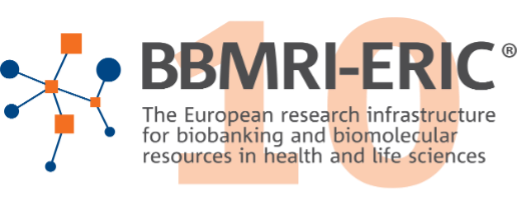
Graz, 29 February 2024: Today, The European health and life science research infrastructure for biobanking and biomolecular resources, BBMRI-ERIC, marks its 10th anniversary of successful operation with a workshop at the Permanent Representation of Austria to the European Union, Brussels.
High-level engagement
The workshop opens with welcome speeches from Franz Wirtenberger, Austrian Deputy Permanent Representative to the EU, Martin Polaschek, Austrian Federal Minister of Education Science and Research, Signe Ratso, EC Deputy Director General for Research and Innovation and Arnaud Vajda, BELSPO Chairman of the Board of Directors.
On the significance of BBMRI-ERIC, Minister Polaschek says:
“The developments of BBMRI-ERIC over the past 10 years in facilitating access to human biological samples and data for health research is remarkable. Cordial congratulations to BBMRI-ERIC for all the achievements in coordinating, structuring and harmonising the biobanking landscape in Europe.”
Arnaud Vajda adds:
“BBMRI-ERIC has charted the path toward a robust and reliable distributed biobanking infrastructure meeting the demand of medical research. What BBMRI-ERIC has achieved in 10 years could not have been achieved on a smaller scale. It is now up to all of us to ensure that this path continues and improves over the next ten years and beyond.”
BBMRI-ERIC has grown to become one of the largest distributed ERICs that now comprises 25 Members and Observers. Speaking of the continuing success and groundbreaking impact of BBMRI-ERIC, Prof. Jens K. Habermann, BBMRI-ERIC Director General says:
“I am delighted by the strong support and engagement of BBMRI-ERIC member states, the European Commission and all our partners. BBMRI-ERIC with its biobanks, National Nodes, Headquarters, and various expert and stakeholder groups has matured to a fully operational and scalable distributed infrastructure. Today, BBMRI-ERIC is well set to continuously serve and engage the community in Member States and wider, as well as to implement EU priorities across the European Research Area over the next decade.”
This high-level workshop highlights examples of BBMRI-ERIC’s achievements and impact in a session featuring headquarters staff, Member State National Node Directors and key biobanking community experts.
The keynote is delivered by Prof. Walter Ricciardi, EU Cancer Mission Board Chair and Chair of the BBMRI-ERIC Scientific and Ethical Advisory Board.
The workshop then looks to the future in an open discussion with key external collaborators including Michael Arentoft, EC Head of Unit for ‘Open Science and Research Infrastructures’; Jana Klánová, EIRENE Director General; Stefanie Houwaart, BRCA Netzwerk Patient Discussion Group Leader; Niklas Blomberg, Innovative Health Initiative Executive Director; Eva Ortega Paíno, Secretary General for Research, Spanish Ministry of Science, Innovation and Research and Jens Habermann, BBMRI-ERIC Director General. The panel focuses on the challenges in health and life sciences, needs and developments towards One Health and the role of research infrastructures.
BBMRI-ERIC was granted ERIC status (European Research Infrastructure Consortium) by the European Commission in 2013. The research infrastructure’s mission is to facilitate access to samples, data and biomolecular resources to enable high-quality research.
The event marks a decade of:
Pioneering: BBMRI-ERIC was one of the first ERICs to be set up in 2013 and one of the largest that is distributed. The research infrastructure connects over 400 biobanks across Europe and further afield with health and life science researchers. It was first to produce an IT federated platform, now deployed across multiple innovative EU projects and used beyond the BBMRI-ERIC community.
Defragmenting: By leading, developing and contributing to projects (cancer, rare diseases, infectious diseases, personalised medicine) BBMRI-ERIC defragments the European Research Area. In-house and community expertise shapes and connects major EU flagship programmes such as Cancer Mission and Beating Cancer Plan, Pandemic preparedness, European Science Cloud and European Health Data Space.
Serving: BBMRI-ERIC primarily serves the European health research community in academia and industry. This is demonstrated by taking the lead in the development of cutting edge services, namely federated IT tools, ELSI research and guidance, quality management and standards, biobanking development, as well as outreach, education and communications, public affairs and finance and project management.
Engaging: BBMRI-ERIC engages, represents and harnesses the expertise in the biobanking community through a CME accredited training programme, Europe Biobank Week Annual Congress, Europe Biobank Week Roadshows and within the governance structure that includes a unique Stakeholder Forum Patient Pillar.
Türkiye has been an Observer State of BBMRI-ERIC since 2014. Reflecting on the benefit and impact of being a key member of the research infrastructure, Neşe Atabey, National Scientific Coordinator of BBMRI Türkiye said:
“BBMRI-ERIC leads the way in increasing awareness of society, researchers, and clinicians about biobanks in our country, establishing biobank accreditation standards, and contributing to various national and international projects of Turkish researchers on cancer, rare diseases, infectious diseases, and personalized medicine. BBMRI-ERIC made truly indispensable contributions to the establishment and development of the biobank network in Turkey, Europe and beyond.”
With thanks to:
The workshop is made possible thanks to Member State support. The Austrian Federal Ministry for Education, Science and Research is hosting BBMRI-ERIC’s 10th Anniversary workshop. Austria is the host country for BBMRI-ERIC. The Belgian Science Policy Office (BELSPO) is co-hosting the 10th Anniversary workshop, as Belgium currently presides over the EU Council, as well as BBMRI-ERIC Assembly of Members.
